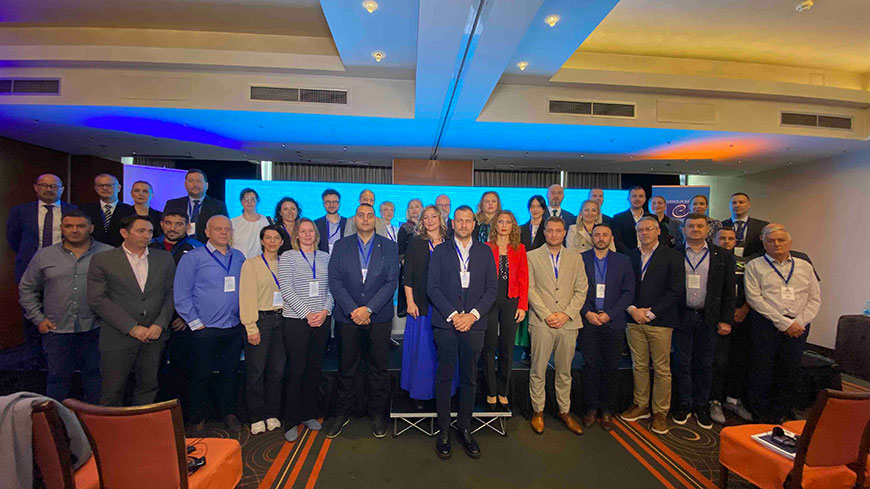A two-day conference organised by the Council of Europe in Sarajevo explored the impact of information and communication technologies on trafficking in human beings and ways to address it through collaboration between public institutions, tech companies and civil society. The conference, entitled “The impact of digital technology on human trafficking: changing the way we respond”, gathered some 60 national and international experts with the aim of supporting Bosnia and Herzegovina, North Macedonia and Serbia in taking further actions. Participants examined the securing and sharing of digital evidence in cases of human trafficking, the use of technologies to strengthen prevention and improve victims’ access to services, and better use of the Council of Europe Cybercrime Convention.
"The widespread use of information and communication technology in the recruitment, control and exploitation of victims of human trafficking - many of whom are children – poses a major challenge. However, tech tools can also be part of the solution, by helping law enforcement authorities to detect, investigate and prosecute human trafficking cases," stressed Bojana Urumova, Head of the Council of Europe Office in Sarajevo.
Stanislava Tanić, Head of the Department for Combating Human Trafficking and Illegal Immigration at the Bosnia and Herzegovina Ministry of Security, pointed out that the increased use of the Internet has multiplied opportunities for traffickers who use social networks to recruit victims and gain their trust. "This is why it is crucial to educate the general public about the risks of the internet and ways of protection, so that they can safely use the internet and be able to recognise the signs of recruitment," explained Tanić.
"Given the increased number of cases in which information and communication technologies are used by traffickers in the recruitment and exploitation of victims, a comprehensive and effective joint response is necessary, from prevention campaigns, through proactive investigations and digital evidence collection. This requires better sharing of experiences and procedures between institutions and Council of Europe legal instruments," said Nenad Simić, National Coordinator for Combating Trafficking in Human Beings, Ministry of the Interior of Republic of Serbia.
"The prevention of new forms of human trafficking facilitated by technologies must also target the youth, in order to protect young people and children who are particularly vulnerable to this heinous crime," said Biljana Lalova, Head of the Anti-Trafficking Unit at the Ministry of the Interior of North Macedonia.
The conference built on the findings from the GRETA’s study on Online and Technology-facilitated Trafficking in Human Beings and the conclusions of research studies, seminars and workshops organised by the Council of Europe in Bosnia and Herzegovina, North Macedonia and Serbia.
The conference was organised within the framework of the Council of Europe project "Strengthening the fight against trafficking in Bosnia and Herzegovina" and the anti-trafficking projects in Serbia and Northern Macedonia, which are part of the joint European Union and Council of Europe programme "Horizontal Facility for the Western Balkans and Turkey" (phase III).




